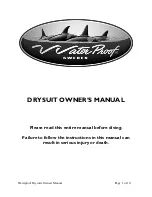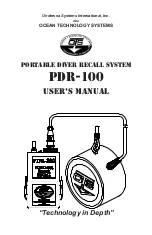
Model 2651A High Power System SourceMeter® Instrument Reference Manual
Section 7: Command reference
2651A-901-01 Rev. A / March 2011
7-155
Details
The file path may be absolute or relative to the current working directory. The root folder of the USB flash drive
has the absolute path "/usb1/". Both the forward slash (/) and backslash (\) are supported as directory
separators.
The file to be loaded must start with the
loadscript
or
loadandrunscript
keywords, contain the body of the
script, and end with the
endscript
keyword.
Script naming:
•
If
the
name
parameter is an empty string, or
name
is absent (or
nil
) and the script name cannot be
extracted from the file,
scriptVar
is the only handle to the created script.
•
If
name
is given (and not
nil
), any script name embedded in the file is ignored.
•
If
name
conflicts with the name of an existing script in the
script.user.scripts
table, the existing
script’s name attribute is set to an empty string before it is replaced in the
script.user.scripts
table by the new script.
•
If
name
is absent or
nil
, the command attempts to extract the name of the script from the file. Any
conflict between the extracted name and that of an existing script in the scripts table generates an error.
If the script name cannot be extracted, the created script's name attribute is initialized to the empty
string, and must be set to a valid nonempty string before saving the script to nonvolatile memory.
Example
myTest8 =
script.load("/usb1/filename.tsp",
"myTest8")
Loads the script myTest8 from the USB flash
drive.
Also see
(on page 7-155)
script.new()
This function creates a script.
Type
TSP-Link accessible
Affected by
Where saved
Default value
Function No
Usage
scriptVar
= script.new(
code
)
scriptVar
= script.new(
code
,
name
)
scriptVar
The name of the variable that will reference the script
code
A string containing the body of the script
name
The name of the script
Details
The
name
parameter is the name that is added to the
script.user.scripts
table. If
name
is not given, an
empty string will be used, and the script will be unnamed. If the name already exists in
script.user.scripts
,
the existing script's
name
attribute is set to an empty string before it is replaced by the new script.
















































